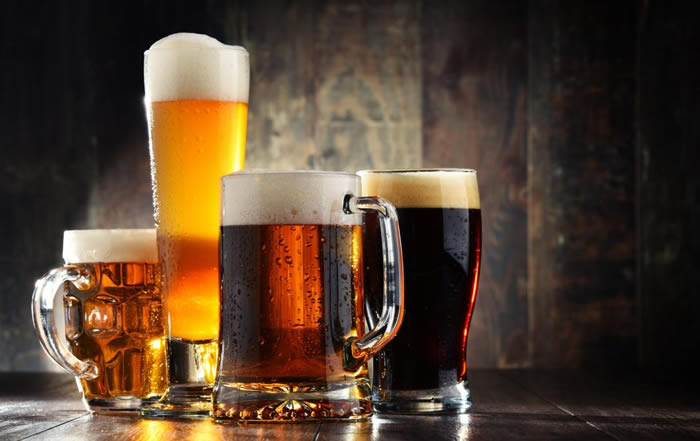Even One Drink a Day Increases Stroke Risk, Study Finds
- Home
- Even One Drink a Day Increases Stroke Risk, Study Finds

Even One Drink a Day Increases Stroke Risk, Study Finds
 Even light-to-moderate drinking increases blood pressure and the chances of having a stroke, according to a large genetic study in The Lancet, countering previous claims that one or two drinks a day could be protective.
Even light-to-moderate drinking increases blood pressure and the chances of having a stroke, according to a large genetic study in The Lancet, countering previous claims that one or two drinks a day could be protective.
The UK and Chinese researchers followed 500,000 Chinese people for 10 years.
They say the findings are relevant to all populations and the best evidence yet on the direct effects of alcohol.
Experts said people should limit their alcohol consumption.
It is already known that heavy drinking is harmful to health and increases stroke risk – but some studies have suggested drinking small amounts can be good for the health, while others indicate there is no safe level of alcohol consumption.
What did the research find?
The researchers, from the University of Oxford, Peking University and the Chinese Academy of Medical Sciences, found that:
- one to two drinks a day increased stroke risk by 10-15%
- four drinks a day increased the risk of having a stroke by 35%
For the purposes of their study, one drink was defined as either:
- a small glass of wine
- a bottle of beer
- a single measure of spirits
About 16 in 100 men and 20 in 100 women will have a stroke in their lifetime in the UK.
So, if a group of 100 non-drinkers started drinking a glass or two every day, there would be an extra two strokes – a small increase.
According to Prof David Spiegelhalter, from the University of Cambridge, that’s an increase in total stroke risk of 38% for every half a bottle of wine drunk per day.
He said: “It is very roughly the opposite effect of taking a statin”, which are drugs prescribed by doctors to help lower cholesterol levels in the blood and prevent heart attacks and strokes.
The study also found no evidence of light or moderate drinking having a protective effect, in other words, reducing the risk of stroke.
When it came to the effect of alcohol on heart attack risk, the researchers said the effects were not clear cut and more data needed to be collected over the next few years.
“Claims that wine and beer have magical protective effects is not borne out,” said study author Prof Richard Peto, from the University of Oxford.
Why China?
East Asian countries are useful places to study the effects of alcohol.
Many people with Chinese ancestry have a combination of genes that puts them off drinking alcohol. It causes an unpleasant reaction and makes them feel unwell.
As a result, there is a wide variation of alcohol intake in China – one in three men doesn’t drink and very few women do.
But by comparing the health outcomes of drinkers and non-drinkers according to their genetic profile, scientists say they have been able to assess – with much more certainty than before – the direct effects of alcohol on stroke risk, distinct from any other factors.
Western populations don’t possess these genes, so it would be impossible to carry out a similar study here.
Most studies are observational, which makes it’s difficult to judge which factor is causing what effect.
Dr Iona Millwood, study author and senior epidemiologist at the University of Oxford, said: “Our genetic analyses have helped us understand the cause and effect relationships.”
So what does this mean for me?
The researchers say their key message is that there is now clear evidence of no protective effect of moderate drinking on stroke.
That means drinking even small amounts of alcohol each day can increase the chances of having a stroke.
This is reflected in the current UK guidance – which advises a limit of 14 units of alcohol a week, with several alcohol-free days to keep health risks low.
What do other experts say?
Dr Stephen Burgess, from the University of Cambridge, said there were some limitations to the study – that it only looked at a Chinese population and focused mainly on the drinking of spirits and beer, not wine.
But he said the research reflected the culmination of many years of research into the impact of alcohol consumption.
“It strongly suggests that there is no cardiovascular benefit of light drinking and that risk of stroke increases even with moderate light alcohol consumption,” he said.
“Risk of stroke increases proportionally with the amount of alcohol consumed, so if people do choose to drink, then they should limit their alcohol consumption.”
Prof Kevin McConway, emeritus professor of applied statistics at the Open University, said the study didn’t answer every question.
“It has certainly advanced what we know about the role of alcohol in some diseases but it can’t be the last word,” he said.
“The new study doesn’t tie down exactly how alcohol works to increase stroke risk but doesn’t appear to increase heart attack risk.”
Prof David Spiegelhalter, Winton professor for the public understanding of risk, at the University of Cambridge, said the study was making him waver.
“I have always been reasonably convinced that moderate alcohol consumption was protective for cardiovascular disease, but now I am having my doubts,” he said.
Source: BBC
- Share
Classic Ghana
Classic Ghana brings you into a fun world of arts, entertainment, fashion, beauty, photography, culture and all things in between. Let’s explore these together!







